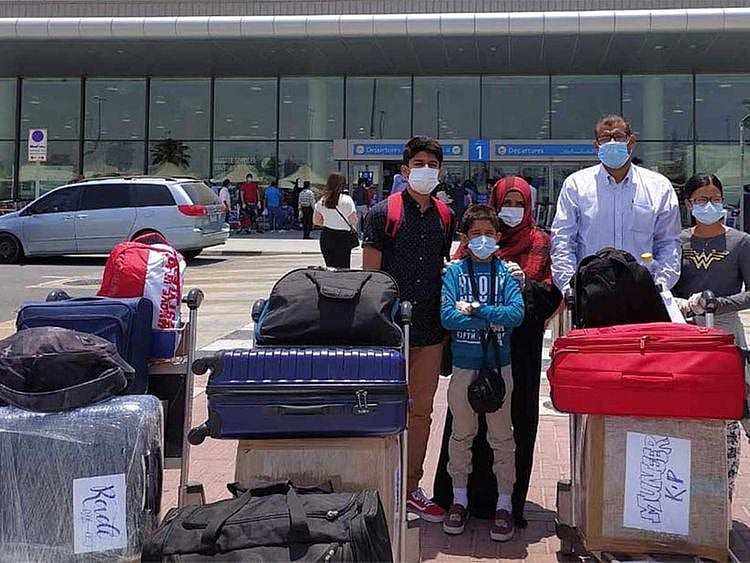How can travellers avoid COVID-19 quarantine in India?
Passengers can show negative COVID-19 test report upon arrival and avoid quarantine

Dubai: Indians travelling to India from the UAE can apply for exemption from institutional quarantine by submitting a negative RT-PCR (real-time reverse transcription-polymerase chain reaction] test on arrival with effect from August 8.
This follows the announcement of new guidelines on Sunday issued by the Indian Ministry of Health and Family Welfare, which was tweeted by India’s Ministry of Civil Aviation.
Also Read
Eid Al Adha 2020: See how UAE residents get into the festive mood11 amazing things to do in the UAE this weekendGulf News readers share pictures of beautiful mosques in UAEPhotos: How UAE residents celebrated Eid Al AdhaThe leeway comes as part of new Ministry of Health and Family Welfare guidelines for international passengers arriving into India, which will be implemented starting from August 8. The latest procedures supersede those issued in May.
Under the fresh guidelines, travellers seeking exemption based on the test must ensure the test is conducted within 96 hours before starting the journey. The test report should be uploaded on a dedicated portal (mentioned in the list of new guidelines in the tweet) for consideration by the authorities.
A passenger applying for the exemption has to also submit a declaration saying the test report is authentic, which, if found otherwise, will make one liable for criminal prosecution.
The test report can also be presented upon arrival at the airport in India.
Without the exemption, travellers must give an undertaking on the portal that they would undergo mandatory quarantine for 14 days — seven days as paid institutional quarantine at their own cost, followed by seven days’ isolation at home.
Only for “compelling” reasons can travellers subject themselves to home quarantine only for all of 14 days. Those reasons include pregnancy, death in family, parents with children aged ten or less, and others. Such travellers have to apply on the portal at least 72 hours before boarding. The guidelines say the decision by the government to grant or decline the exemption on the portal will be final.
Know before you travel: Prior to boarding:
Travel agencies will provide the dos and don’ts to passengers with their ticket.
Only asymptomatic travellers will be allowed to board after thermal screening.
Passengers are advised to download the Arogya Setu app.
During travel:
Masks must be worn and hand and respiratory hygiene must be maintained.
Passengers must fill the self-declaration form onboard (if they hadn’t done so online) and present it to officials upon arrival.
On arrival:
All travellers must pass thermal screening.
Those found symptomatic will be isolated and taken to medical facility.
Those exempted from institutional quarantine will have to present the approved decision before the authorities before being allowed into home quarantine.
All others will be taken to institutional quarantine facilities, for a minimum seven days.
If they test positive, they will be assessed clinically at the next step — home isolation, or isolation in Covid Care Centre, or admission to Covid health facility.
If found negative, they will be advised to isolate themselves at home.
Sign up for the Daily Briefing
Get the latest news and updates straight to your inbox
Network Links
GN StoreDownload our app
© Al Nisr Publishing LLC 2026. All rights reserved.